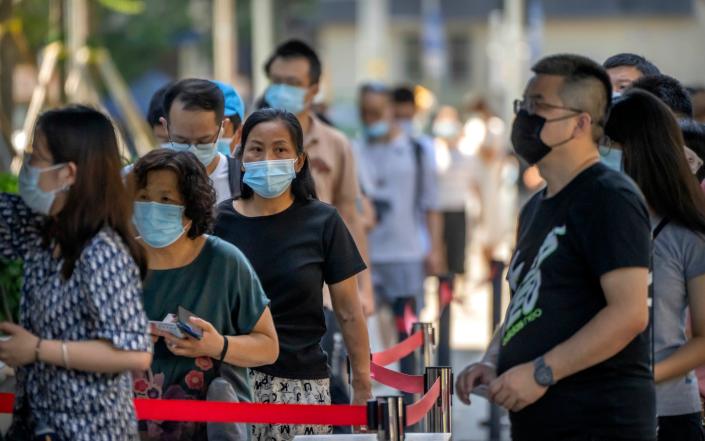
Xi Jinping’s key economic target is in tatters after the Chinese premier’s zero-Covid strategy sparked a severe growth slowdown.
China‘s economy grew just 0.4pc in the second quarter, the weakest performance since the onset of the pandemic and Wuhan lockdown two years earlier, and the second-weakest in three decades.
The weak expansion means China is likely to fall short of its goal of 5.5pc GDP growth, a blow to Mr Xi as he prepares to secure a third term in power.
Its National Bureau of Statistics said the “foundation for sustained economic recovery is not stable”, warning of the risks posed by continued outbreaks.
Beijing is expected to unleash hundreds of billions of dollars in stimulus in an effort to prop up growth, although detailed plans have yet to emerge.
Goldman Sachs slashed its forecast for China’s annual growth to 3.3pc following the data, saying the figures suggested a “heavier-than-expected toll” from lockdowns in April and May.
The bank said China’s recovery from the recent lockdowns would be slower than the 2020 rebound, owing to signs of cooling demand elsewhere in the world.
Manufacturing hub Shanghai was hardest-hit after entering a two-month lockdown. Output shrank by 13.7pc as lockdowns prompted factory closures and caused disruption at the world’s biggest port.
In Beijing, which also introduced restrictions, output dropped 2.9pc, the third-highest across all provinces.
Economists at Australia and New Zealand Bank said “new downside risks” to growth are now looming for China’s economy, including a faster-than-expected fall in home-buyer mortgage payments and the prospect of further local lockdowns.
Julian Pritchard from Capital Economics said the reading was “even weaker than meets the eye”, calling it “implausible” that output was higher between April and June despite a bounceback at the end of the period.
He said: “Even with some massaging of the figures, it’s hard to see how the government’s target of ‘around 5.5pc’ growth this year can be attained.”
Chinese house prices fell by 0.1pc in June, the tenth successive month of falls despite government efforts to curb a property crisis.
Sales fell for a twelfth consecutive month, the most sustained slump since China created a market for private property in the 1990s.




